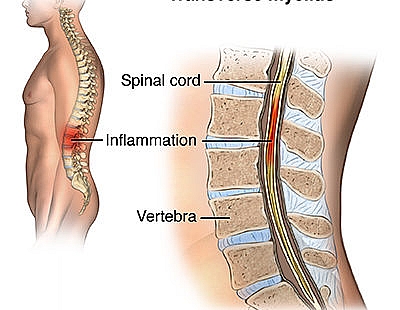 Can hypothyroidism be cured? You better believe it! Here’s how Sara survived Hashimoto’s Thyroiditis, and how she helps women find hypothyroidism treatments that work for them.
Can hypothyroidism be cured? You better believe it! Here’s how Sara survived Hashimoto’s Thyroiditis, and how she helps women find hypothyroidism treatments that work for them.
“When I was diagnosed with Hashimoto’s Thyroiditis, I used it as fuel to learn and conquer it from the root cause,” says Sara Ashe, RHN, a Halifax-based thyroid wellness coach. “ I started nourishing my immune system with healing foods. After two months of continuous support, my doctor declared me free of Hashimoto’s Thyroiditis! Around that time, I learned how journaling, praying and self love would heal my mind and spirit. Being determined and grateful would have its impact.”
I found Sara on Twitter, via Corrina Gordon-Barnes. I wrote about Corrina’s new beginning as a small business marketing coach, and how she takes leaps of faith in business. This article about a natural hypothyroidism treatment is also a business leap of faith. I bet you haven’t heard of a “thyroid wellness coach”like Sara!
In this article, I describe:
- What Hashimoto’s Thyroiditis is
- How Sara found her hypothyroidism treatment, and what she does as a “thyroid wellness coach”
- The causes and symptoms of Hashimoto’s Thyroiditis
- Resources for hypothyroidism and Hashimoto’s Thyroiditis, including Sara’s website and contact info
I welcome your thoughts on hypothyroidism treatments and Hashimoto’s Thyroiditis at the end of the article.
What is Hashimoto’s Thyroiditis?
Hashimoto’s disease is an autoimmune disorder. Basically, white blood cells and antibodies of the immune system attack and destroy the cells of the thyroid gland. The thyroid gland is part of your endocrine system, which produces hormones that coordinate many of your body’s activities. The resulting inflammation often leads to an underactive thyroid gland (hypothyroidism). Without hypothyroid treatment, death can occur within 10 to 15 years.
Another answer to the “what is Hashimoto’s Thyroiditis?” question: It’s a disorder that affects your thyroid, a small gland at the base of your neck, below your Adam’s apple. The thyroid gland is part of your endocrine system, which produces hormones that coordinate many of your body’s activities. In Hashimoto’s Thyroiditis, also known as chronic lymphocytic thyroiditis, your immune system attacks your thyroid gland. The resulting inflammation often leads to an underactive thyroid gland (hypothyroidism).
Hashimoto’s disease is the most common cause of hypothyroidism in the United States. It primarily affects middle-aged women, but also can occur in men and women of any age and in children.
How do you treat hypothyroidism or Hashimoto’s Thyroiditis? That depends on who you ask! If you ask a medical doctor for a hypothyroidism treatment, he or she will give you a much different answer than if you ask a holistic healer, naturopathic doctor, or thyroid wellness coach like Sara.
How Sara Survived Hashimoto’s Thyroiditis

Sara Ashe & son
She found a natural hypothyroidism treatment. “After two years of learning how to eat and live well, I was declared with normal thyroid function,” says Sara. “Victory! I healed my thyroid naturally. The key was to listen in to what my heart really desired. As I balanced my blood sugar levels, strengthened my iron supply, eased my digestive woes, calmed my hormones, made peace with the past and let go of my troubles miracles started to happen. A new day was dawning. The anxiety disappeared, the low energy was melting. The sun was rising and so was my life.”
The interesting thing about Sara’s hypothyroidism treatment is that she was patient and courageous. She found a natural path to healing from hypothyroidism, and listened to her body.
Sara let the treatment for Hashimoto’s Thyroiditis unfold slowly. “Just as it took years for my symptoms to arise and even more time for Hashimoto’s Thyroiditis to present itself,” says Sara, “it took time and courage to see a new vitality arise. I was driven by my desire to reclaim my health and my life. I was living with purpose and in order for me to help others [as a thyroid wellness coach], this was the road I needed to travel.”
Sara hopes her story will encourage you to be patient and loving with your body and mind, as you go through the process of healing from Hashimoto’s Thyroiditis and finding a hypothyroidism treatment that works for you.
Symptoms of Hypothyroidism or Hashimoto’s Thyroiditis
The symptoms of hypothyroidism can be mild, moderate or severe. In its severest form (myxoedema coma), hypothyroidism is potentially fatal and requires urgent medical treatment.
Symptoms of hypothyroidism can include:
- Fatigue and low energy levels
- Depression
- Slow heart rate
- Unexplained weight gain
- Intolerance to cold temperatures
- Fatigued and aching muscles
- Dry, coarse skin
- Puffy face
- Hair loss
- Constipation
- Problems with concentration
- Goitre (enlarged thyroid gland)
If you think you have hypothyroidism, talk to your health practitioner about possible treatments.
What Causes Hashimoto’s Thyroiditis?
Here are a few causes of Hashimoto’s Thyroiditis or hypothyroidism, from Causes, Symptoms, and Treatments of Hypothyroidism on the Better Health Channel:
Iodine deficiency disorder – lack of sufficient iodine in the diet can prevent the thyroid gland from making hormones. The thyroid enlarges as it attempts to comply with the pituitary gland’s ceaseless chemical messages to produce more hormones. An enlarged thyroid is known as a goitre. Babies and children can be stunted and severely brain damaged by iodine deficiency because thyroid hormones are needed for normal growth and development.
Treatment for hyperthyroidism – treatments for hyperthyroidism (including drugs, surgery and radioactive iodine) frequently lead to hypothyroidism. For example, surgery is the primary treatment for thyroid cancer and also a treatment for hyperthyroidism. Surgery will lead to hypothyroidism if the thyroid gland is removed or if insufficient is left in place.
Some medications – including lithium and the heart drug amiodarone can interfere with the normal processing of iodine and the production of thyroid hormone. This may lead some women to seek more medications as a hypothyroidism treatment.
Don’t let the causes and symptoms of Hashimoto’s Thyroiditis and hypothyroidism scare you! “Our body has an incredible ability to heal if given a chance,” says Sara. You WILL find a hypothyroidism treatment if you are patient and connected to your body.
Are you looking for a hypothyroidism treatment that will work for you? To learn more about Sara – and her role as a thyroid wellness coach – go to her website, Sara Ashe – Absolutely Holistic.
Resources for Hypothyroidism and Hashimoto’s Thyroiditis
Hashimoto’s Thyroiditis: Lifestyle Interventions for Finding and Treating the Root Cause by by Izabella Wentz. What’s Really Going on in Hashimoto’s Thyroiditis? Hashimoto’s is more than just hypothyroidism. Most patients with Hashimoto’s will present with acid reflux, nutrient deficiencies, anemia, intestinal permeability, food sensitivities, gum disorders and hypoglycemia in addition to the “typical” hypothyroid symptoms such as weight gain, cold intolerance, hair loss, fatigue and constipation. The body becomes stuck in a vicious cycle of immune system overload, adrenal insufficiency, gut dysbiosis, impaired digestion, inflammation, and thyroid hormone release abnormalities. This cycle is self-sustaining and will continue causing more and more symptoms until an external factor intervenes and breaks the cycle apart. The lifestyle interventions discussed in this book aim to dismantle the vicious cycle piece by piece.
Stop the Thyroid Madness: A Patient Revolution Against Decades of Inferior Treatment by Janie A. Bowthorpe. It addresses a 60+ year, international thyroid treatment scandal involving the use of T4-only medications like Synthroid and other T4-only meds, as well as the TSH lab test–both which have left hundreds of millions worldwide either undiagnosed or undertreated. It explains in detail: 1) what medications work far better and why; 2) which labwork is better than others, and how to read the results (i.e., it has nothing to do with just being “in range”); 3) how a huge body of thyroid patients fall into adrenal fatigue/HPA dysfunction as a result of poor treatment by doctors, plus what patients have learned in treating it; 4) a long list of causes of hypothyroidism; 5) cutting-edge treatment of Hashimotos’s disease and gluten intolerance; 6) why patients need to be aware of Reverse T3, plus how to treat it; 7) how to discover and treat low levels of Vit. D, B12, ferritin and iron, iodine and more deficiencies which doctors can miss.
I welcome your thoughts on hypothyroidism treatments, and Sara’s experience with Hashimoto’s Thyroiditis.




